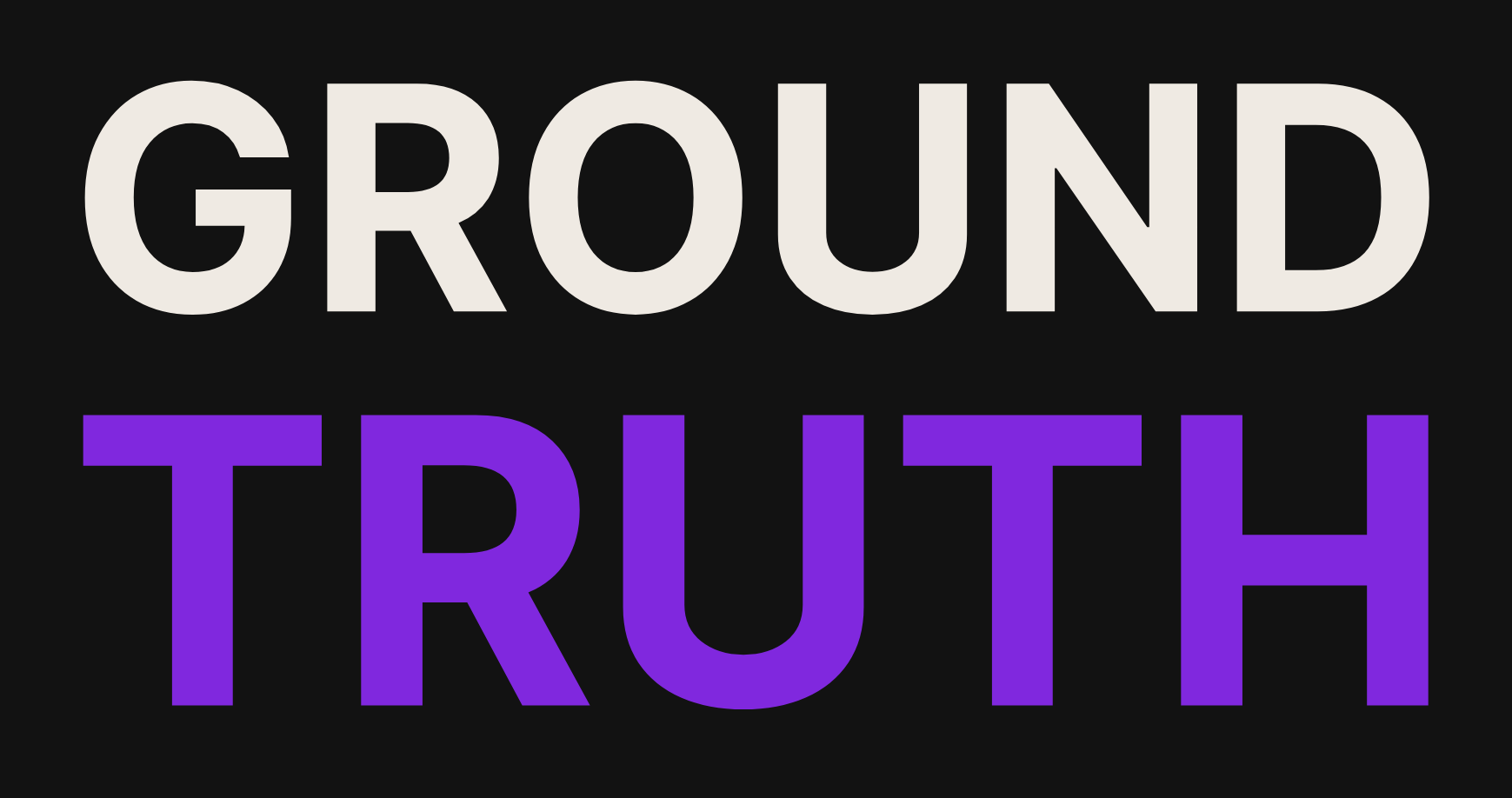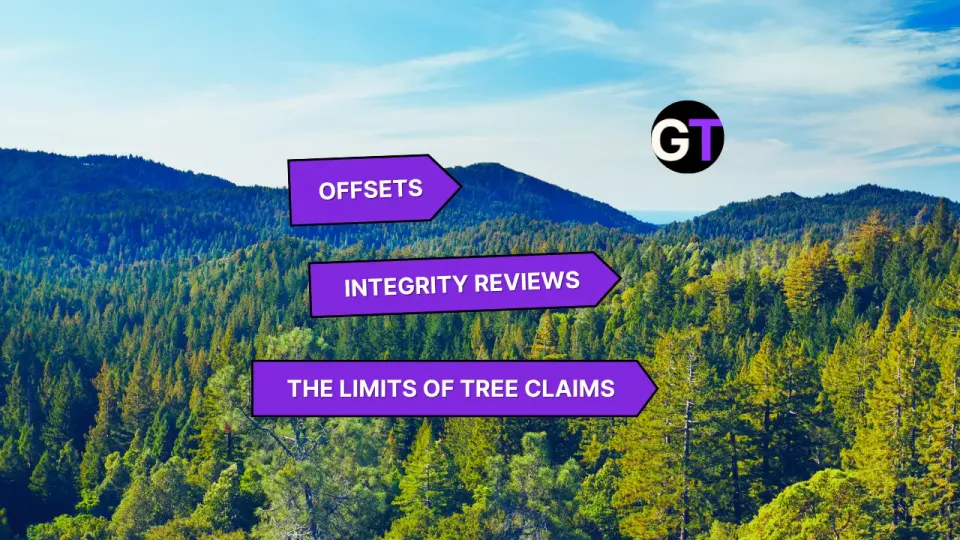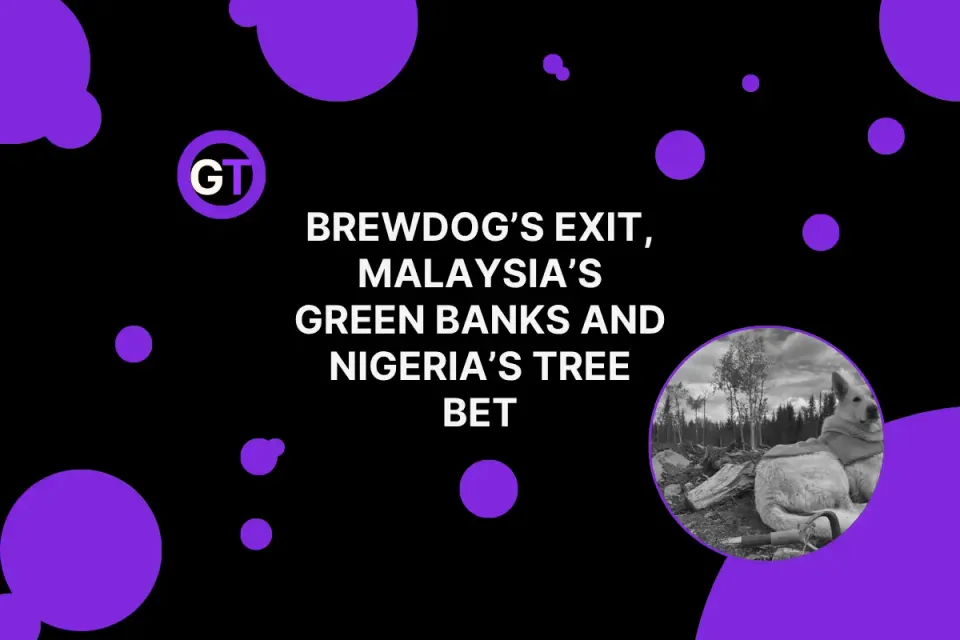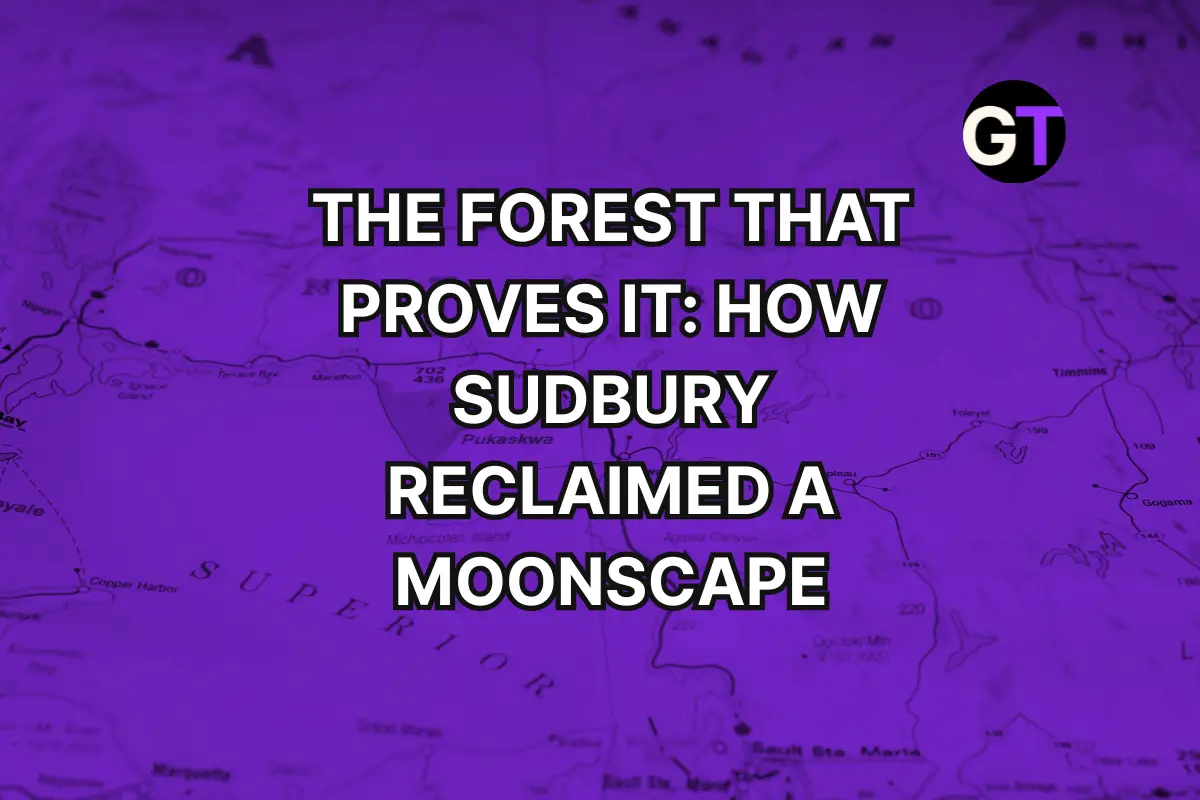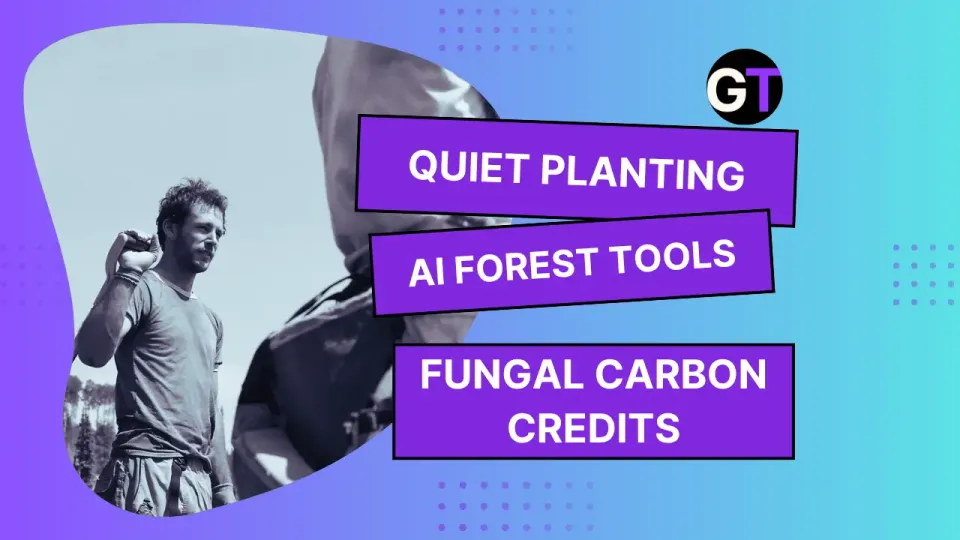Ground Truth Weekly Forest News December 19
Big Tech Symbiosis Coalition for nature-based carbon credits, amazon native reforestation, national project, FAO, VERRA, blockchain forest monitoring, and more...
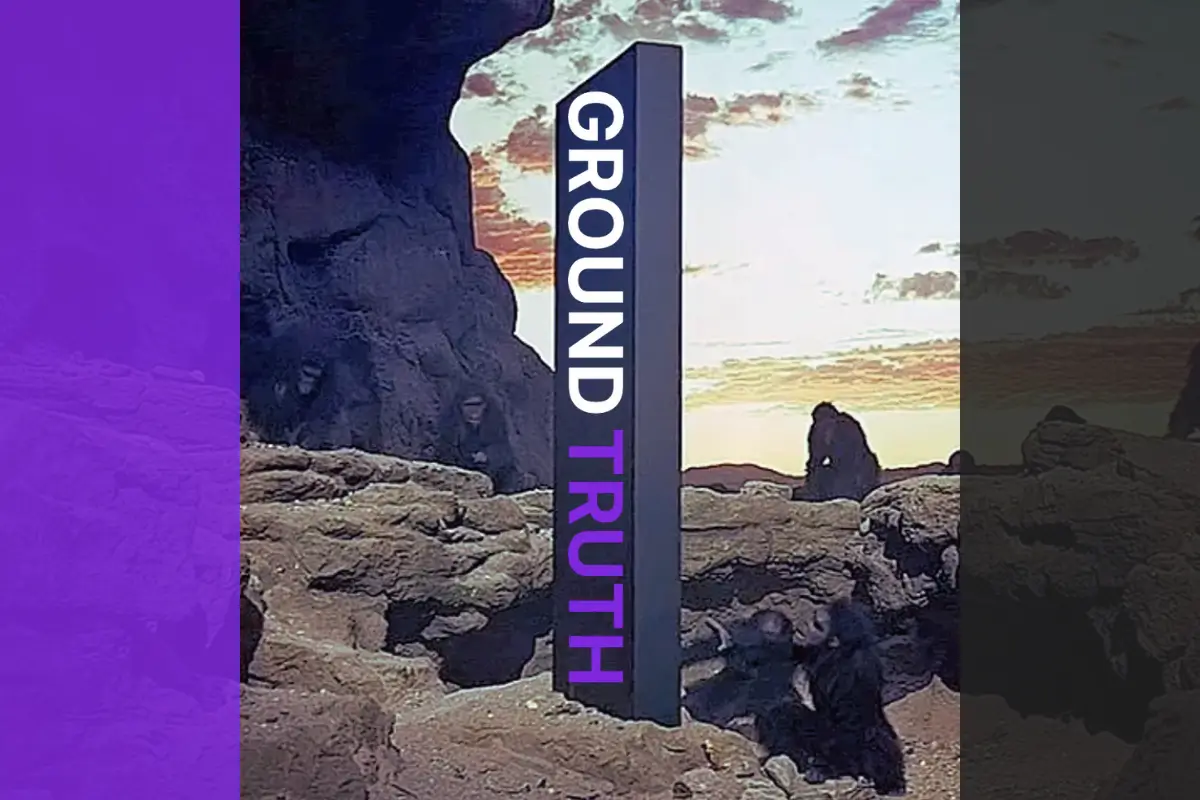
Tech Giants Join to form Symbiosis Coalition
Google, Meta, Microsoft, and Salesforce have teamed up in the Symbiosis Coalition to scale nature-based carbon removal projects. The coalition has launched a Request for Proposals (RFP) seeking tree-planting initiatives capable of delivering up to 20 million tonnes of high-quality carbon removal credits by 2030. With a focus on transparency and rigorous standards, the initiative aims to address criticisms of carbon markets while creating measurable ecological and social benefits.
Observers are cautiously optimistic, noting the coalition’s collaborative approach and commitment to data-driven accountability. However, questions remain about whether Big Tech can implement these ambitious projects effectively, ensure equitable benefits, and maintain transparency in key details like species diversity and financial data.
What do you think it will take to overcome skepticism about carbon credits and their true impact on climate solutions?
👉👉 Read our coverage on Ground Truth
Congress Greenlights Major Conservation Investments
Congress approved the U.S. Foundation for International Conservation Act, funding up to $100M annually for global conservation efforts. This initiative, requiring a 2:1 private-public match, empowers local communities and Indigenous Peoples to manage protected areas. Additional bipartisan wins include mine cleanup legislation promoting renewable energy on former sites and reauthorizations supporting endangered species recovery and estuary protection.
What do you think are the biggest challenges in scaling global conservation efforts effectively?
👉👉 Read more from The Nature Conservancy
Brazil's Amazon Restoration Plans: Carbon Credits and Native Reforestation
Brazil is initiating a groundbreaking effort to regenerate the Amazon through 35-year reforestation concessions for degraded public lands. Companies will restore native vegetation and earn carbon credits under a regulated carbon market, blending environmental recovery with sustainable business opportunities.
Can business incentives like these could effectively address global environmental challenges?
👉👉 Read more in Folha de S. Paulo
Verra’s ARR Methodology Gains Global Approval for Carbon Removal
Verra’s Afforestation, Reforestation, and Revegetation (ARR) Methodology, VM0047, has earned ICVCM approval, boosting trust in nature-based carbon removal projects. This framework combines rigorous carbon accounting with ecosystem restoration, paving the way for scaling high-quality initiatives worldwide.
Does rigorous vetting like ICVCM approval help build trust in sustainability efforts?
👉👉 Read more in Carbon Herald
Ukraine’s Reforestation Drive Faces Wartime Challenges
Nearly 5,000 hectares of new forests were planted in Ukraine in 2024 despite obstacles like mined land and limited free space. The State Enterprise “Forests of Ukraine” continues its campaign, planting climate-resilient trees and urging local authorities to provide more land to combat desertification and climate change.
Ground Truth cannot find much data on the specific locations of the planting or the tree species being used. We have reached out to the State Enterprise “Forests of Ukraine” for more details but have not yet received a response. We’ll keep you posted as we learn more.
How important is transparency in reforestation efforts for measuring success?
👉👉 Read more in Ukrinform
Reviving Madagascar’s Sainte Luce Littoral Forest
SEED Madagascar’s Ala Programme is restoring the Sainte Luce littoral forest, one of Madagascar’s last viable ecosystems, to protect endangered species like lemurs. Despite early challenges such as high seedling mortality, improved planting and soil management have reduced losses, with lemurs returning to restored corridors in 2024. By sharing both successes and setbacks, the program demonstrates how transparency and collaboration can drive effective conservation and inspire global efforts.
Should conservation projects prioritize transparency about setbacks to build trust and improve outcomes?
👉👉 Read our coverage on Ground Truth
Revolutionizing Forest Management with AI
PhD candidate Lanying Wang is transforming forest management by combining remote sensing with deep learning (DL) models. Using low-density LiDAR data, Wang’s approach improves the accuracy of tree species classification, helping to calculate carbon sequestration potential more reliably.
Her work reduces the need for extensive training data and enhances scalability, supporting sustainable resource management in even the most remote forested areas.
How can AI innovations like this help revolutionize sustainable forest management?
👉👉 Read more from UWaterloo
FAO Launches AIM4Commodities to Advance Forest Monitoring and Data Access
The FAO has launched a $1.4 million project, funded by the German Agency for International Cooperation, to improve forest-related data and promote sustainable practices among smallholder farmers and Indigenous Peoples. The initiative, Accelerating Innovative Monitoring for Forests and Commodities (AIM4Commodities), will enhance the Open Foris Whisp platform to support geospatial data standardization and transparent commodity value chains.
As part of the effort, FAO unveiled new dashboards, e-learning courses, and self-assessment tools during a South-South knowledge exchange in Rome. These innovations aim to strengthen forest monitoring, compliance with trade regulations, and carbon accounting standards, with a focus on equitable access to information and tools for vulnerable stakeholders.
Can technology like this truly bridge gaps in forest conservation for marginalized communities?
👉👉 Read more on the FAO
New Zealand Seeks Partners for Tree Planting on Crown-Owned Land
The New Zealand government is exploring partnerships to plant trees on Crown-owned land to meet climate goals and boost employment. The proposal includes land managed by the Department of Conservation (DOC) and LINZ, focusing on areas unsuitable for farming and with low conservation value. A request for information (RFI) process has launched to assess interest and suitability, with outcomes to guide next steps.
Do you think tree planting on government land is an effective way to address climate change and create jobs?
👉👉 Read more on Land Information New Zealand
This Week in Forest Finance: Global Projects Drive Sustainability
From Colombia’s $47.4 million mangrove restoration initiative to Brazil’s $2.78 million Babassu Forest project, nations are linking conservation with community empowerment and sustainable livelihoods. Australia is investing $73.76 million in plantations to meet timber demand and climate goals, while Canada’s $838,608 Tekwänt’e Man project contributes to a larger push for reforestation and emissions reduction. These efforts highlight how targeted investments can balance ecological restoration with economic growth.
How can financial initiatives be designed to ensure they deliver lasting ecological and social benefits?
👉👉 Read our coverage on Ground Truth
MoniFun Offers Grant for Blockchain Solutions in Forest Monitoring
MoniFun has opened its first grant call, offering up to EUR 60,000 for innovative projects that use blockchain technology to decentralize and improve forest data management across Europe. The initiative aims to enhance transparency, traceability, and efficiency in monitoring forest ecosystems, production, and trade, supporting sustainability and better decision-making. Applications are open until 16 March 2025.
How effective will blockchain be in addressing forest data challenges?
👉👉 Read more in MedForest
Edited by Chris Harris

This work is licensed under a
Creative Commons Attribution 4.0 International License.
